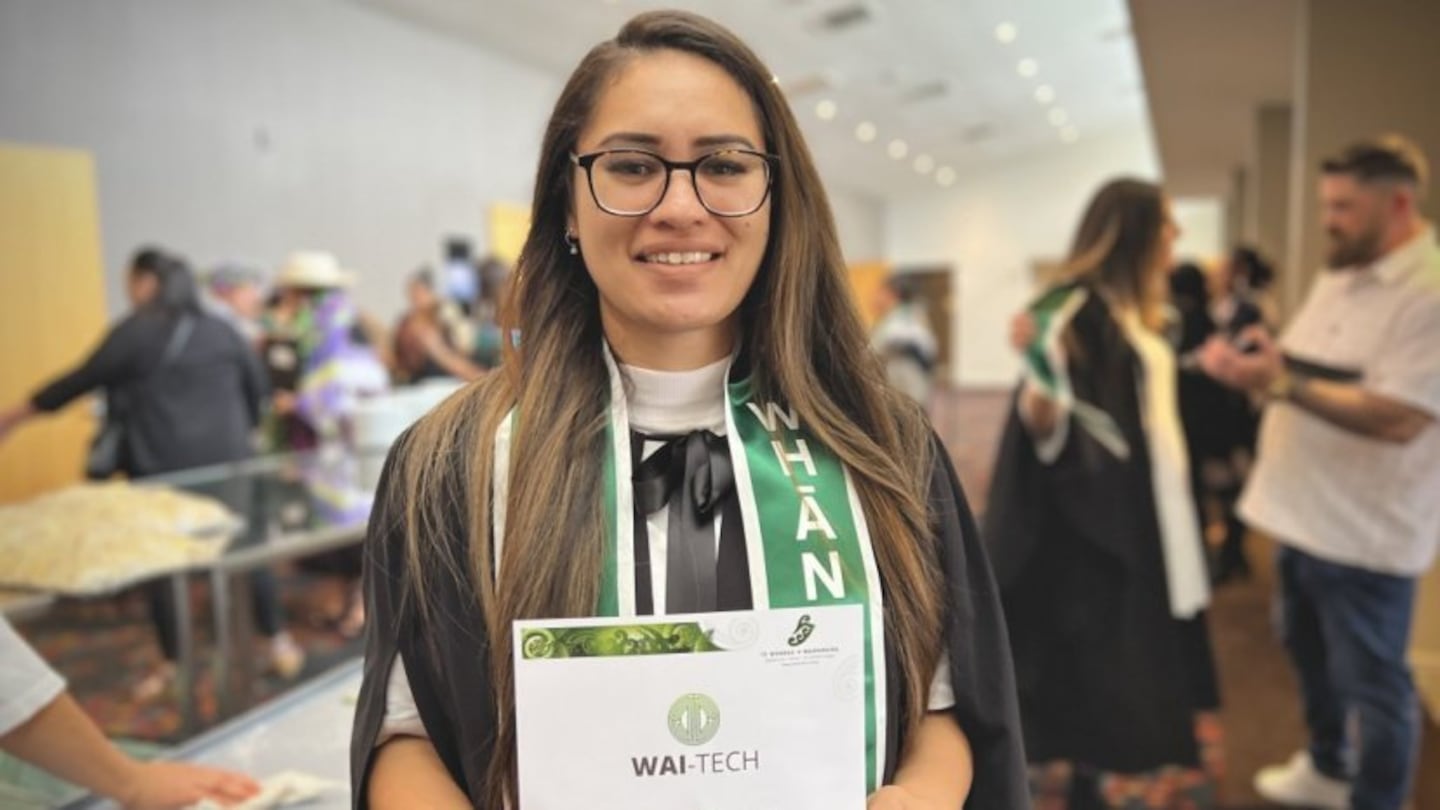Studying as they work - 76 Whānau Ora staff members from throughout Aotearoa have graduated with a level 5 diploma in Whānau Ora education.
Whānau Ora commissioning chair Merepeka Raukawa-Tait says this graduation is a great success that will further enhance the well-being of all whānau across Aotearoa.
“The difference with Whānau Ora is that we want our people to live the best lives that they can, we don't want our people to be supported because they are either mad, bad or sad.
“That sort of ridiculous idea is long gone. We say to our whānau that we have unlimited potential and we are here to support you to be the best that you could be.”
She says all of the whānau who have graduated today have worked hard through Covid-19 and studied to complete their diplomas at the same time.
“These graduates have put the hard yards in for the last couple of years and they have been working at the same time so that's been a real commitment and a real honour to be here, supporting them today.”
'Put in the hard yards'
Vera Ruawhare-Tuhakaraina, one of the 76 graduates, is pleased to finally receive her diploma today after working with whanau Ora throughout Covid-19 and studying for it during lockdown.
She says that the diploma is more than just a piece of paper; it is a certificate that certifies her ability to offer assistance and support to all whānau in Aotearoa.
“It's more than just validating what you do in your mahi, the difference for us as opposed to a social worker is that we live and breathe te ao māori and it shows in our mahi with our whānau.”
“So I'm hoping to do the whānau Ora degree and it's more about validating more about what we can do for our whānau, our whānau Māori and our whānau Pasifika.”
Raukawa-Tait says although she understands the shortage of health workers in Aotearoa, Whānau Ora is the best place to start when it comes to the government needing more health workers.
Although Raukawa-Tait acknowledges the lack of health professionals in Aotearoa, she believes the government should see that by empowering Whānau Ora and investing in their education, everyone across Aotearoa would benefit far more.
'Getting in early'
“Importing doctors and nurses from overseas, kei te pai but those people will never lead our whānau to a better place as much as we can.
"We want to help our whānau and support them before they get into the health system, before they enter the court system. We want them to be well-educated, well housed and good jobs and that's about getting in early, knowing the whānau, knowing their circumstance and where they live."
She says the government should be investing far more into Whānau Ora as the success rate would be much higher.
“We make a difference in the lives of every whānau who connect with Whānau ora. You can measure our success because Whānau Ora providers live in the communities where our whānau live, so we are all well connected.”
Raukawa-Tait says that success is catchy and Whānau Ora wants to succeed in providing far more support for every community around every region of Aotearoa and that is the importance of the graduation.
“We support our provider partners and look after them as best as we can with the funding we have available, but we could do far more with more funding, educating those interested in health care and providing the correct care to all whānau in Aotearoa.”



